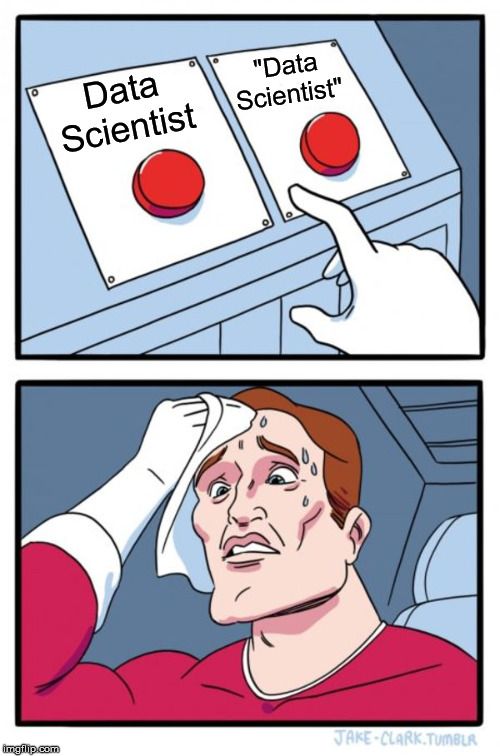In one of the conversations I have recently, there was a discussion on how to determine whether a person is a
- data scientist because of experience and capability
- data scientist by title
All businesses will like to hire the first rather than the second. No one wants to hire a "data scientist" that talks his/her way through and not making any positive impact. But being a new field, not a lot of people knows how to select the one that can make an impact.
Here is how you can do it if your business is hiring a data scientist. Always remember this, "It takes one to know one." So your first step, seek help from an experienced data scientist, someone who has immense experience, has done a lot of machine learning model training and implementation in a business setting. Seek out the local tech community. The enthusiast and the passionate are over there. You can seek out the speakers as well.
Next, ask if they can join an interview and if not, seek their assistance to look through the resume (hide the name of the candidates, please) and get their opinion on how they may fair in a data science role. The most experienced data scientists should be able to give you some feedback and comments on the resume.
Now comes the interview part, here are a few tips.
- Ask a lot of questions about the projects they have done, seek out what is their thought process, how they solved the business challenge, why they take a particular route, and not another. Asking questions like these, you get signals on whether the interviewee has done the project, which part he/she has done it. You can also check if you agree with how they solve the problem with data.
- Every time the interviewee gives you a technical term, get them to explain to you in layman terms. The level of understanding, that you as a layman can understand, forms a proxy on how much experience the interviewee has with the said technical keywords. If you get them to explain the technical keywords, here is what is going to happen:
* The very experience one will continue to use technical words in their interview because they are confident enough to explain it.
* Those that are what I called "keyword spout-ers", they like to throw out a lot of technical keywords to create an illusion of expertise, they will start to panic and not use too many technical keywords during their interview.
Catching these signals can help you to understand the true level of experience the interviewee has.
And to round up the selection process, get back to an experienced data scientist, share with him/her the interview process and your thoughts on the top few candidates. This is to provide the final touches, to determine which candidate to hire.
It is not a fool-proof way, but I am very sure it can help! If you read this far, I know you are looking for a data scientist that can make an impact. I wish you all the best in building up your Data Science capabilities. If you'll like more details on how to build up the capabilities here are a few more posts you might be interested:
- Data Science Maturity Process in Business
- Should Start-Up do Data Science?
- Building Data Science Capabilities in Business
All the best in building up your Data Science capabilities. If you want to stay in touch for the latest consider subscribing to my newsletter, else let us stay in touch on LinkedIn or Twitter. :)
